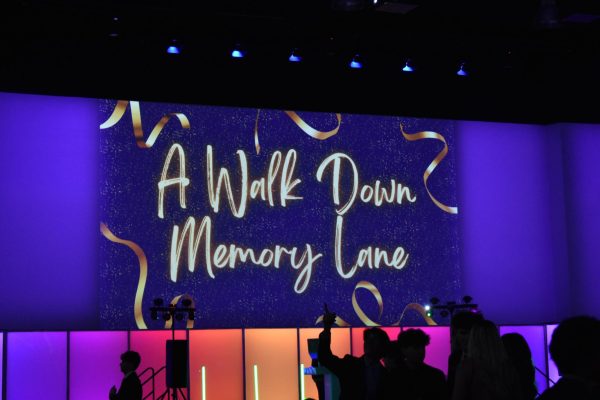Death to Deadnaming [OPINION]
As a race, humans are prone to turning against things that they don’t understand. Throughout our time on Earth, we have retaliated against whatever we don’t understand in the form of wars and genocides that have changed the course of history; however, the worst type of retaliation is the one that happens right in front of us.
Sometimes, the worst things happen right in the hallways of our high schools, in the form of prejudice and discrimination.
Transgender individuals all over the United States have been dealing with discrimination from their peers even before trans people were recognized by the government in the 1980’s. Everybody has something to say when it comes to the transgender community, ranging from a noncommittal grunt, undying support, to blatant disrespect.
While some nay-sayers keep quiet on their thoughts about the transgender community, the truth is that many do not. Many are loud about their opinions and may even go out of their way to continuously deny trans people of an essential right — basic respect.
Basic respect is the communal understanding that someone or something is important, and should be treated in an appropriate way.
Deadnaming is considered a violation of basic respect. When someone transitions to the gender they identify with, they often pick a new name. Their old name, assigned to them at birth, becomes a “deadname.” Getting deadnamed is an invalidating experience that harms the person at the receiving end.
“It’s disrespectful [and] downright distasteful,” said a student who wanted to remain anonymous. “[Getting deadnamed is] a painful reminder that not everybody thinks of me as who I am.”
Other students thought the same, resenting the habit of deadnaming.
“That’s not their name anymore,” said freshman and LGBTQIA+ ally Avalon McDaniel. “It reminds them of someone they don’t wanna be.”
Deadnaming also occurs along with misgendering, or calling a person by a pronoun or term of address by which they do not identify. This is, unfortunately, a common occurrence in many transgender people’s lives. Even more unfortunately, it’s a very irrational habit.
“When you’re in class and someone says they go by a nickname, you can switch it up pretty easily,” states an anonymous student.
Some people, when introduced to a new name or pronoun, struggle to put the change into effect. Sadly, most of these people don’t try to memorize the new name. They have a fear of messing up as it’s awkward to deadname by accident. What they don’t realize is that it’s even worse to never try at all.
It’s only natural to struggle with learning a new name as it would be asking too much to never mess up. If you accidentally deadname someone, all you have to do is apologize and move on.
Even though rights for the trans and LGBTQIA+ community as a whole have improved in Colorado, progress seems slow. Many trans people still feel unaccepted, out of place, and even endangered in their communities.
While polls show that most American adults oppose anti-trans laws, transgender teens still face a blatant lack of support within their schools. Slurs are thrown around in the hallways like ugly confetti. Friends can turn into complete strangers in the span of minutes.
Though there will always be a nay-sayer, a bully, and a shiny new insult, we can all do small things to support the transgender people we know within our community and out of it. Whether it’s accepting a friend’s new pronouns or starting a national movement to demand rights, the steps that you take to show basic respect to transgender people will be appreciated.
“If you can’t wrap your head around pronouns, just say the [preferred] name,” an anonymous student said. “It’s probably the least you could do.”







![Bill HB24-1448: What Does It Mean? [OPINION]](https://ghschronicle.com/wp-content/uploads/2024/05/Hayne-Photo-1-600x450.png)
![Colorado Rockies: No Trophy in Sight [Opinions]](https://ghschronicle.com/wp-content/uploads/2024/05/IMG_3018-2-600x450.jpg)
![Freshman 101: Great Intentions; Repetitive Practices [Opinions]](https://ghschronicle.com/wp-content/uploads/2024/05/Screen-Shot-2024-05-02-at-1.58.44-PM-600x492.png)
![Why is APUSH So Hard? [Opinions]](https://ghschronicle.com/wp-content/uploads/2024/05/APUSH-600x338.jpg)



